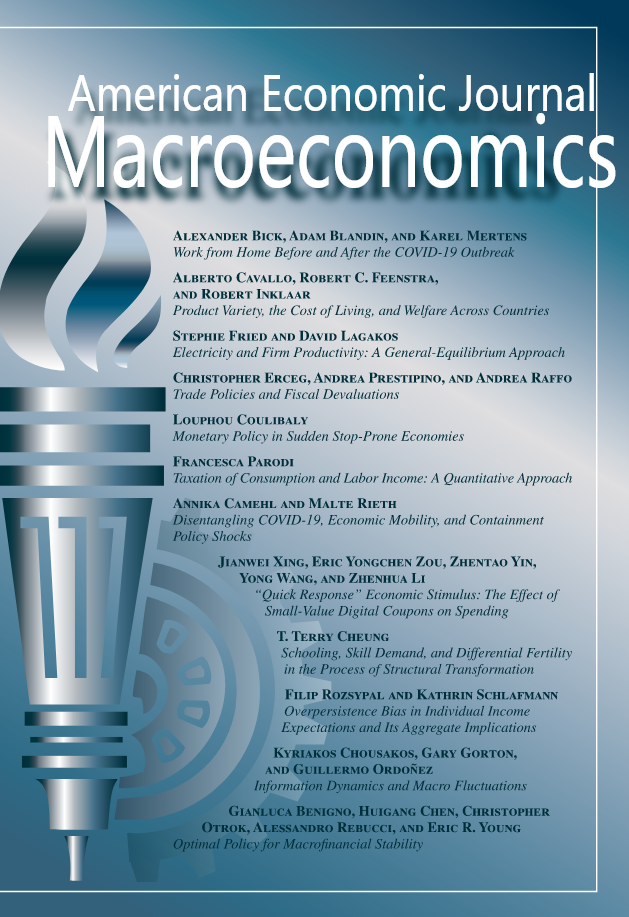用带有剩余限制的svar衡量欧元区货币政策
IF 5.7
1区 经济学
Q1 ECONOMICS
引用次数: 2
摘要
本研究利用对结构向量自回归残差的少量符号和幅度限制来衡量欧元区货币政策的影响。我们从围绕欧洲央行官方政策公告的高频金融市场数据中得出这些冲击的日期和方向。基于深入的叙事分析以及与标准高频方法结果的比较,我们认为我们的方法不受央行信息效应的影响。尽管我们采用了相当不可知论的识别策略,但我们发现货币政策冲击对广泛的宏观经济变量产生了明确而确凿的影响。(jel c32, e43, e44, e52, e58, f33, g14)本文章由计算机程序翻译,如有差异,请以英文原文为准。
Measuring Monetary Policy in the Euro Area Using SVARs with Residual Restrictions
This study measures the effects of monetary policy in the euro area using a small number of sign and magnitude restrictions on the residuals of a structural vector autoregression. We derive the dates and directions of these shocks from high-frequency financial market data around official European Central Bank policy announcements. Based on an in-depth narrative analysis and a comparison of the results with those of a standard high-frequency approach, we argue that our approach is purged from central bank information effects. Despite our rather agnostic identification strategy, we find clear and conclusive effects of monetary policy shocks on a wide range of macroeconomic variables. (JEL C32, E43, E44, E52, E58, F33, G14)
求助全文
通过发布文献求助,成功后即可免费获取论文全文。
去求助
来源期刊

American Economic Journal-Macroeconomics
ECONOMICS-
CiteScore
8.20
自引率
1.70%
发文量
58
期刊介绍:
American Economic Journal: Macroeconomics focuses on studies of aggregate fluctuations and growth, and the role of policy in that context. Such studies often borrow from and interact with research in other fields, such as monetary theory, industrial organization, finance, labor economics, political economy, public finance, international economics, and development economics. To the extent that they make a contribution to macroeconomics, papers in these fields are also welcome.
 求助内容:
求助内容: 应助结果提醒方式:
应助结果提醒方式:


